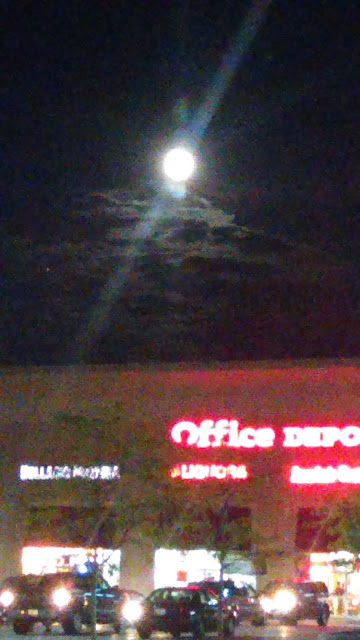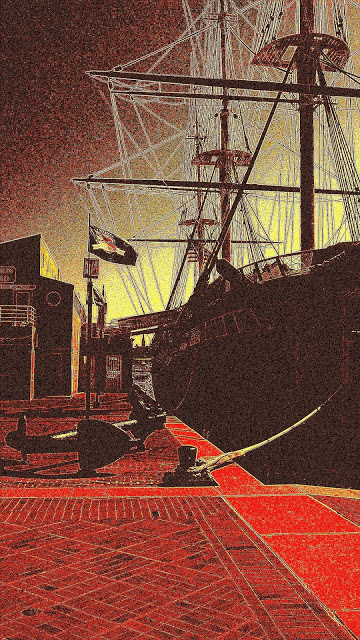When a balloon bursts it lays flat but first it shoots as a rocket. Air escaping propels it horizontally till finally the balloon lays dead. Shape, buoyancy and bright color gone; a major tear shows apparent. Air will never re-inflate this bag of latex again. Is this a valid life-metaphor? A sharp pointed devise does the bursting. A harsh word? — Derogatory remark? — Evil report or unwanted news? Our hearts grimace, but not air-borne — rather toward people, circumstances, any avenue to blame or receive consolation. “Help, I’m going down quickly.” “People with broken hearts have one thing in common—having expectations of other people. Having expectations of how someone else is supposed to act, feel, think, speak and behave. If you never want to experience a broken heart, eliminate all expectations from your relationships.”” Norrington… Truth, but a stoic existence is healing? — where’s the hope? “Part of the pain of a…
Category: <span>Healing Cross</span>
We must review what Job said toward the end of his quandary and inner alteration. In Job 42:5, “I have heard of thee by the hearing of the ear: but now mine eye sees thee.” Also in Job 42:6, “Wherefore I abhor myself, and repent in dust and ashes.” Job’s faculty for discerning God shifted from ear to eye. …but wait, this new “sharpening of insight,” caused Job to hate himself? Apparently the shift of insight made him see drastically clearer, awakening a new awe of God, but deepening shame-awareness? But, what new thing did Job see in God? To explain, here is a quote from our founder, Pastor Stevens; “God is ontological. Very simply, this means that God has always been everything He is and ever will be. Even before He created the angels and the human race, God was who He is now and who…
Martha received him into her house. Sister, Mary, sat at Jesus’ feet, and heard his word. Martha was dragged about with much serving. Martha said, “Lord, dost thou not care that my sister hath left me to serve alone? bid her therefore that she help me.” Jesus answered and said unto her, Martha, Martha, thou art anxious and disturbed about many things (needy). But one thing will supply the need: Mary hath chosen that good part, which shall not be taken away from her. Luke 10:37- Sisters fighting? No, pictured are 2 kingdoms at war. A highly motivated agenda vs. A highly relaxed “it is finished” positioning. Anxiety-fueled unsettledness vs. rest-filled right-mindedness. Disturbed resentment vs prioritized excellence. slavish pose vs friendly exchange superficial honoring vs. heart honor Two men went up into the temple to pray; the one a Pharisee, and the other a publican. The Pharisee stood and prayed thus with himself,…
“But let patience have her perfect work, that ye may be perfect and entire, wanting nothing.” James 1:4 I’ve noticed three different kinds of trials which could describe the work of perfecting Inconvenience: The broke down car-it eventually gets fixed. Disappointment: The car that just doesn’t repair — never gets fixed. Disillusionment: the car accident that is from hell.-I never want to drive again. All trials challenge every ounce of faith. They destroy natural faith. “Let patience have her perfect work.” “Let your patience endure that you may be stable, mature, and complete when I speak to you, with no defects in your capacity to listen.”Dr. Carl Stevens “Our patience, as it endures, will always bring forth a vision.” Stevens Isaiah 35:7 is an illustration of what God will do for us in the valley: “I will take the parched ground and make it a pool.” Dr.Carl…
“Who art thou that judgest another man’s servant? — to his own master he standeth or falleth. Yea, he shall be holden up: for God is able to make him stand.” Romans 14:4 A man stands or falls before God; with the risk of acceptance or rejection he stands in front of God, his Maker. What does God want from him? To be a winner of souls with wisdom required. To be a fisher of men. This is it? To have a secure philosophy? Not enough. To be a good looker? It can help, but falls short. No, to be a draw to others requires one thing — standing before God. Before God , a man is held up. He stands erect. This enables him to win other men. So, here he stands, and standing with God’s watchful eye he is guided. Guided where? — “Into all…
“Be not carried about with divers and strange doctrines. For it is a good thing that the heart be established with grace.” Hebrews 13:9 Windy surmisings must not bear us away. Ephesians 4:14 1) “…they lie in wait to deceive.” —— Who does this? n Some men who take a “stab” at life; n They throw the dice. n They take a chance at truth. n They go risky ——– Deceive Who? 2) “…children, tossed to and fro, and carried about with every wind of doctrine…” ——- How? 3) “… sleight of men, and cunning craftiness.” “To be “free” and self-determined is the temptation to man.” Folks lust to “find” themselves (in themselves) and put off incoming restraints. Psalm 12 “Emancipation” from Christ and conscience however, puts a man in a scary place because Laws, social mores, and influences of religion die. In leaving the old, new precepts will take over.…
Nothing gives more pleasure than disappointment turned to hope. It’s like the budding of a flower, petals which were shrunken in withdrawal, unraveling and stretching in beaming beatification. There is no blush — Just a brave display of approval by Him; the face-lightener, joy bringer, chin-lifting Christ. The Prize seen, we mirror Him –- reflection as in still water. Jacob looks upon his once dead son; he is alive, he is alive! Peter looks upon the once dead Christ; He too is alive. The countenance of the two is shining, a fire is lit. A narrow. Many yearn, they’re disenchanted. Others set their hearts on things, to Disparagement. The world is cruel toward certain dreams. Why? There is no furtherance, no continuance, no story-end. But, there is more to come, my friends; it is too early to quit. Here is the mistake, the hardening center, the darkening of mind. Here is…
Indispensable Some people are indispensable members of Christ’s body. Some get superabundant honor. Others we decorate in bountifulness. The list goes this way: 1) The feeble 2) The less honored 3) The uncomely These are strength-less or weak. 4) Unbeautified, shapeless and not elegant. These groups often get kicked to the curb. Matthew 25:40 teaches, “Inasmuch as ye have done it unto one of the least of these my brethren, ye have done it unto me.” How? When and why were these acts of kindness done to the least, and accounted as having been done to Jesus Himself? Let us become one of these To discover this, let us become one of these weak, indeed we are already more like them than we admit. With their shoes on our feet, how does it go? a. They have a physical blemish or crooked walk. b. They have failed a lot at vital issues.…
I find that folks want to know what is “normal,” so to speak. Does a Christian fail a lot? Does he or she sin just a little? Maybe, less and less, or do we grow weaker with age and sin more? Where does our Achilles’ heel manifest itself? What is the operating mode for living above the fragility? Do we have a besetting sin? — Gray areas? Does the free volition function freely always, or is it hindered? Do most rebound from sin and failure regularly; agreeing with God about our sin, isolating sin from our true identity, forgetting what is past? Is it common to frequently commit the sin of unbelief in still living in guilt or regret? How’s the soul? Is there harmony? What branch of the soul dominates you? Are you an avid thinker, or a determiner; a feeling kind of person, or full of fear, or self-conscious? Are…
Hope maketh not ashamed. How does it work? Penti Ikonen and Eero Rechardt say “the reaction to the absence of approving reciprocity,” is shame. Gunnar Karlson, “…the main constituents concerning shame are its anchorage in the situation to which it refers; …perpetually objectified; …the revelation of an undesired self; …a history of frozen nowness.” Lynn Jacobs PH.D says “shame fear and guilt, these are the ‘feelings about feelings;’ the boundary keepers.” “ Experiencing a forbidden feeling,” evokes shame. These afore mentioned answers exist in the realm of analysis; empirical, rational, sometimes very insightful — Psycho/Physiological stuff. Wow! “a person with internalized shame believes he is inherently flawed, inferior, and defective.” John Bradshaw. For what it is worth, we have definitions. Adam and Eve were naked and not ashamed. They disobeyed. Shame began here. They became pale, disappointed, delayed, and dry. They got steep protective boundaries, they received limits, things quit…








